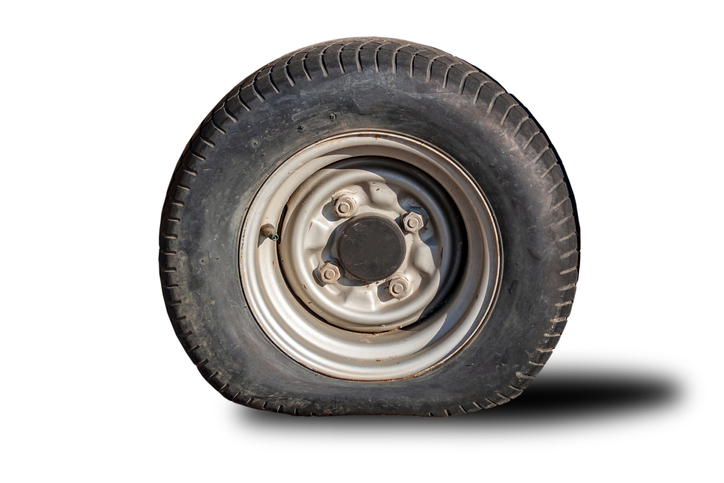
Your car’s tires may be your last line of defense to prevent a car accident. Weak or worn tires can lose their grip when you hit your brakes, leading to a collision that you were trying to avoid.
The car accident lawyers at Kantrowitz, Goldhamer & Graifman encourage all car owners to check their tires or to ask a mechanic to inspect the tires periodically to detect early signs of failure than can lead to serious automobile accidents.
What Are the Early Signs of Tire Failure?
Car owners can perform simple visual inspections of their tires without a mechanic’s assistance. If any early warning signs are apparent, they can then have the tires inspected by professionals who can confirm if the tires are still safe for regular vehicle operation. Car owners should specifically check:
- Do the tires have sufficient tread depth? A simple way to do this is to insert a quarter into the treads. If Washington’s head is completely visible and not covered by any of the treads, the tires should be replaced.
- Do the sidewalls have any cracks, bulges, or blisters? Car owners should pay extra attention to sidewalls after they have driven against curbs or through deep potholes.
- Are any nails or other objects embedded in a tire? Modern tires can still hold some air pressure after a puncture, but a slow air leak can cause more serious problems than a flat tire. If you hear a rhythmic clicking from a tire while driving or the car is pulling in one direction, check each tire carefully for small punctures.
- Are tires inflated properly? Tires should be inflated to the air pressure recommended by their manufacturer. Changing temperatures and rough roads can affect tire pressure. Auto parts stores carry inexpensive gauges that car owners should use to check tire pressure at least once every month.
What Can Car Owners Do to Extend Tire Life and Prevent Early Tire Failure?
In addition to periodically inspecting their tires for early signs of failure, car owners can extend tire life by:
- Rotating the tires (i.e., switching the rear tires to the front, and the front tires to the rear) after every 6,000 miles of driving;
- Maintaining the car’s wheel alignment;
- Keeping brakes, suspension, and steering systems in good operating condition;
- Driving in ways that avoid excess tire stress (e.g., no sudden turns or fast starts and stops, minimal driving on rough road surfaces, etc.).
Do Plus-Size Wheels Contribute to Early Tire Failure?
Car owners that customize their vehicles with larger wheels should take extra precautions to verify that their tires are in good shape and that those wheels are not putting excess stress on the car’s other systems. Tires that are designed for plus-size wheels have smaller sidewalls, and many of those tires are manufactured from softer compounds that will lead to faster tire wear. If you use plus-size wheels, make sure that you inspect the tires more frequently and that the car can handle the extra stress that those wheels can place on the car’s suspension and brakes.
Can Tire Failure Cause a Serious Car Accident?
In 2016, the National Highway Traffic Safety Administration stated that tire malfunction was a major contributing cause of more than 700 annual fatalities in car accidents. Poorly-maintained tires can lead to blowouts and loss of vehicle control. Underinflated tires can impair the handling of a car. Inadequate tire treads can cause a car to skid and slide and can increase stopping distance after braking. Checking tires for early signs of failure might prevent fatalities and reduce the overall severity of car accidents.
Call the Car Accident Lawyers at Kantrowitz, Goldhamer, & Graifman
The personal injury lawyers at Kantrowitz, Goldhamer & Graifman are advocates for car accident victims in Rockland and Bergen counties and elsewhere in New York and New Jersey. We help our clients to recover the largest available damages awards to compensate them for injuries and losses they suffer in car accidents caused by negligent drivers. Call today for a free case review!
Additional Resources:
- www.performanceplustire.com: The Pros and Cons of Plus Sizing. https://www.performanceplustire.com/tech-info/the-pros-and-cons-of-plus-sizing/
- www.consumerreports.org: Beware These early Warning Signs of Tire Failure. https://www.consumerreports.org/cro/news/2012/03/early-warning-signs-of-tire-failure/index.htm
- www.nhtsa.gov: Tires. https://www.nhtsa.gov/equipment/tires
